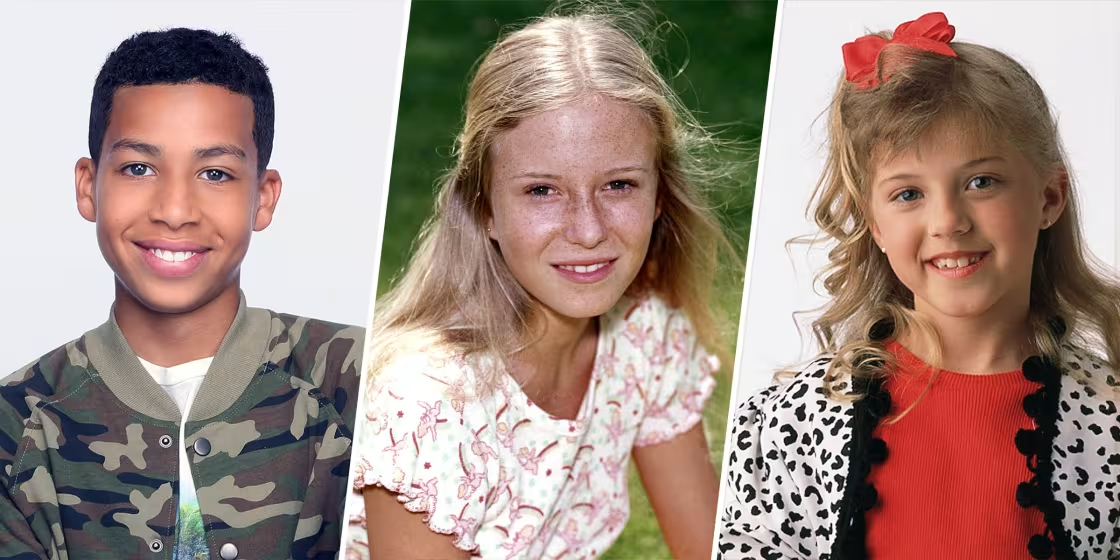Overlooked and underappreciated, middle children like Jan Brady ("The Brady Bunch"), Andre Johnson Jr. ("Black-ish") and Stephanie Tanner ("Full House") make their mark with their sibling jealousy and attention-seeking behavior.
That's why Bruce Hopman, middle child and founder of the International Middle Child Union, is on a mission to make sure that "mid kids" feel included and valued. And in self-described "middle child fashion," he's not afraid to be "annoying" about it.
In 2012, Hopman was shocked to discover that August 12 is Middle Child Day. "How ironic is it that we're given this day that nobody knows about?"
To raise awareness that year, Hopman sent out press releases calling for a middle child strike, and the movement made its way to TODAY.
Get top local stories in Philly delivered to you every morning. Sign up for NBC Philadelphia's News Headlines newsletter.
Speaking to co-hosts Willie Geist and Natalie Morales, Al Roker said, "Bruce Hopman, a middle child advocate, called for a day of celebration and strike. He said the strike was for the mistreatment of the middle child — "
"Hello?!" interjected Natalie, happens to be a middle child. "Finally somebody's speaking my language!"
"But the problem is nobody cared," Al finished with a hearty laugh.
U.S. & World
Stories that affect your life across the U.S. and around the world.
After gaining some additional media attention, it occurred to Hopman that he couldn't stage a strike without first having a union. And that's when the International Middle Child Union was born.
What is 'middle child syndrome'?
The American Psychological Association defines middle child syndrome as "a hypothetical condition"; so, not really an official thing. But we don't recommend mentioning that to any middle children you know.
Middle child syndrome, according to Hopman, is “the constant yearning and search for attention.” It can be tempting to look to parents for setting the syndrome in motion, but they aren’t necessarily to blame.
“Some of it is simple math, right?” he says. “Parents of one child have x amount of time to devote to that child. When they have two children, it’s x divided by 2. When the last one is born, you can shower them with affection. Plus you can take all the mistakes you made ... fine tune it a little bit. So, the last one gets that benefit of attention, plus probably, hopefully better parenting.”
Hopman, who is from New Jersey (fittingly, in the middle of the east coast), has an older brother and a younger sister, and he defines "middle children" as any siblings other than the oldest and youngest in the family.
The first two years before his sister arrived "were the best years of my life," he says. "And then my sister was born. So that was it. My halcyon days were over."
He's joking. Kind of. We think.

Hopman calls his family's particular birth order, with two children of the same gender followed by a third child of the opposite gender, the "worst possible order." He explains that parents are overjoyed to have their firstborn, then they have a second that's basically the same as the first (yawn) ... and then they have that third child who adds something new and exciting to the family. Then they stop having children.
"So it wasn't like they just want to have lots of children," Hopman explains. "They just wanted to keep going till they got something different than the first one."
How can parents help middle children feel valued?
Hopman married a fellow middle child, and together they raised three children: a boy, a girl and another boy. He calls this the "perfect setup" for lessening middle child syndrome since the novelty of a different gender will give the second-born more spotlight. Plus, his middle child happened to be the only girl out of 12 cousins who all lived in close proximity.
But it wasn't enough.
Even though Hopman and his wife "showered her with attention," he says, "My daughter is such a middle child. That's how powerful middle child syndrome is. Even if you're the only girl out of an entire family, it doesn't matter. You got it. It's like cooties."
To lessen the impact, Hopman has some suggestions for parents.
- Pay attention to your middle children (which includes any children other than your oldest and your youngest), especially on Middle Child's Day.
- Consider having a family "middle child appreciation night" like they do for baseball teams.
- Print a membership card for the International Middle Child's Union. ("Our arms are wide open," Hopman says.)
- Download Hopman's middle child app, which will whisper sweet (validating) nothings into your middle child's ear, such as: "We have so many pictures of you!" or, "You can have the best seat!"
What about eldest daughters?
Don't even get Hopman started on eldest daughter syndrome, another non-medical condition. He considers its very existence an attack on middle children.
"It never stops," he sighs.
First middle children were threatened by "extinction" a few years ago when family sizes seemed to be shrinking, and now they're being elbowed out of the way by bossy older sisters.
Having a syndrome is "our thing," says Hopman. "Who else wants a syndrome anyway? I thought we were safe. I thought we could have the thing that nobody else wants, but we can't even have that. It's an outrage to me. An outrage."
Citing successful middle children like Bill Gates, J. Lo and Dr. Martin Luther King, Jr., Hopman says, "My advice for middle children is understanding that we can't win. But I think we turn out pretty well."
This article first appeared on TODAY.com. More from TODAY:



